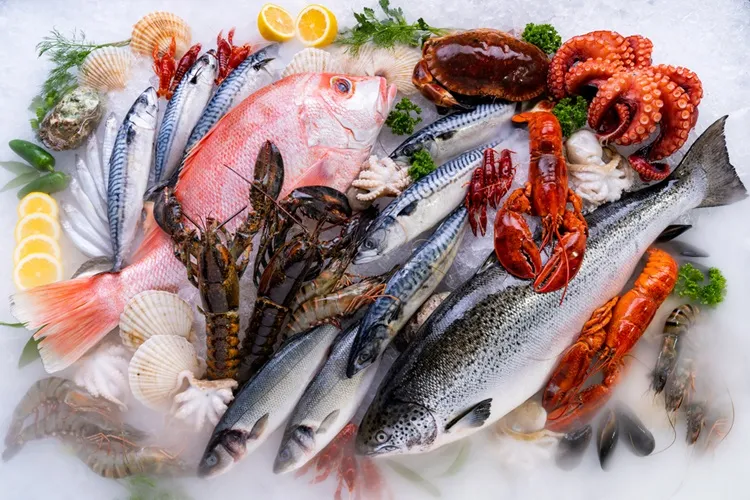You’ve probably all heard by now about the Mediterranean diet (which was all the hype last year) and its numerous health benefits. It’s no secret that our generation puts a huge emphasis on maintaining a healthy lifestyle and eating clean food, which has destigmatized dieting to a certain extent. That being said, we’ve recently been presented with a brand-new study published in the JAMA Network Open journal on the newfound Traditional Atlantic Diet. Similar to the Mediterranean one, it includes foods such as fish, fruit, and vegetables that are either grown or found in northern Portugal and northwestern Spain.
What is the purpose of the Atlantic diet? How does it impact our health, and who is it best suited for? How do you make a proper meal plan based on the dietary restrictions? We unpack all of this and more!
What is the Atlantic Diet?
The Southern European Traditional Atlantic Diet, or Atlantic Diet for short, includes foods that can be found in countries that border the Atlantic Ocean such as Spain, Portugal, France, Ireland, and some parts of the UK. Similar to the Mediterranean diet, it has a limited intake of red meats and includes lots of fish and shellfish, locally grown fruits and vegetables, whole grains, nuts and olive oil. It focuses on the consumption of fresh whole foods and healthy fats, which have been proven to have many health benefits, the most important one being reducing the risk of heart disease.
The Atlantic diet puts an emphasis on “mindful” eating – it encourages you to prepare home-cooked meals and share them with friends and family to add a social element, which takes the ritual of eating beyond its primal purpose.
Read also: Why is Everyone Doing the Mediterranean Diet? – Find Out the Health Benefits of These 8 Tasty Foods
What are the Health Benefits of the Atlantic diet?
The recently published study on the Southern European Traditional Atlantic Diet explains that it has been proven to have tremendous effects on lowering the risk of metabolic syndrome (high blood sugar, high blood pressure, high cholesterol levels, and others). Other primary health benefits that have been observed are:
- Reduced risk of heart diseases – Thanks to the Omega-3 fatty acids in the seafood, the Atlantic diet helps with lowering blood pressure and triglyceride levels, which significantly decreases the risk of arrhythmia.
- Weight regulation – This diet’s main focus is the consumption of fresh fruits, vegetables, and whole grains and excluding sugars and processed foods, which helps reduce the risk of obesity in the long run.
- Minimizing the risk of developing chronic diseases – Plant-based foods are a great source of natural antioxidants which help reduce the risk of getting chronic diseases such as type 2 diabetes, neurodegenerative diseases, and some kinds of cancer.
- Promotes gut health – Fruits, vegetables, and whole grains are very rich in fibers, which have a positive impact on our gut health and aid the production of good bacteria which is important for healthy digestion.
- Mental Health – The Atlantic diet is packed with nutrients and vitamins which have a great positive impact on our overall mood, and as a result reduce the risk of mental health illnesses, the most common ones being depression and anxiety.
There are also some studies that show positive effects of the Atlantic diet on lowering insulin levels, improving insulin resistance, BMI, and waist circumference.
Who is the Diet Best Suited For?
Most people can benefit from the Atlantic diet as its main focus is on healthy fats and foods rich in nutrients. However, if we had to pinpoint particular target groups, the best suited would be those who are:
- Having concerns about their heart health.
- Struggling with PCOS.
- Trying to manage their weight and increase their metabolism.
- At risk of chronic diseases.
- Elders trying to maintain and improve their cognitive function.
What Foods Does the Atlantic Diet Allow?
As we mentioned above, this diet contains foods that have been locally sourced from countries that border the Atlantic Ocean. Researchers have highlighted the following ones:
- Fruits and vegetables
- Whole grains
- Chestnuts
- Cheese
- Seafood
- Bread
- Rice
- Potatoes
- Beans
- Olive Oil
- Small amounts of meat
- Wine (occasionally)
Are There Any Cons?
This diet has many health benefits and isn’t as restrictive as most other food regimens, however, there are some potential drawbacks, such as:
- Accessibility difficulties for people who live in regions that don’t have fresh seafood directly available to them all year round.
- Depending on your geographical location, some of the products such as fruit, vegetables, and fish can be quite costly, which makes it challenging for those who are on a tighter budget.
- Overfishing is a serious issue in some countries which has a serious negative environmental impact, so it is important to choose seafood that has been sourced sustainably.
Read also: Why Eat One Meal a Day? These Are the Effects the OMAD Diet Has on the Body When Losing Weight


